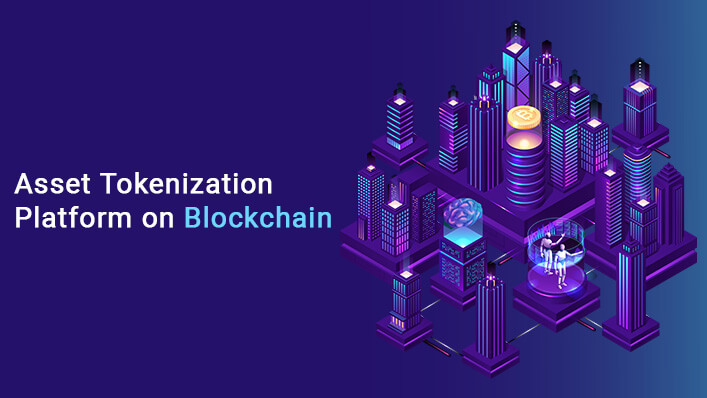Asset tokenization on blockchain refers to the process of converting tangible or intangible assets into digital tokens on a blockchain network. The tokens are then traded on the blockchain network as if they were traditional financial assets. It provides a number of benefits, such as increased liquidity, fractional ownership, reduced costs, and enhanced security. Here’s a complete guide on asset tokenization on blockchain:
What is Asset Tokenization?
It is the process of converting assets into digital tokens that can be traded on a blockchain network. Assets that can be tokenized include real estate, art, commodities, stocks, bonds, and other financial assets.
The tokens are backed by the underlying asset and can be fractionalized, meaning that investors can buy a portion of the asset rather than the entire asset. This allows for greater liquidity and accessibility to a wider range of investors.
| For Any Query Drop A Mail At: info@coindeveloperindia.com
How does it work?
It works by creating a digital representation of an asset on a blockchain network. The digital representation is then divided into tokens, with each token representing a portion of the underlying asset.
The tokens are stored on the blockchain network, which provides a secure and transparent way to track ownership and transfer of the tokens.
Investors can buy and sell the tokens on a secondary market, similar
Benefits of Asset Tokenization
It provides a number of benefits, including:
- Increased liquidity: Tokenized assets can be traded on a secondary market, providing investors with greater liquidity compared to traditional illiquid assets such as real estate.
- Fractional ownership: Investors can buy a portion of the asset rather than the entire asset, which provides greater accessibility to a wider range of investors.
- Reduced costs: Tokenization can reduce transaction costs associated with traditional asset transfer and ownership, such as legal and administrative costs.
- Enhanced security: Blockchain provides a secure and transparent way to track ownership and transfer of tokens, reducing the risk of fraud and ensuring compliance with regulations.
Types of Tokenization
There are two main types of asset tokenization:
- Partial tokenization: This involves creating tokens that represent a portion of an asset. This allows for fractional ownership and increased liquidity.
- Full tokenization: This involves creating tokens that fully represent an asset.
Asset Tokenization Platforms
There are a number of tokenization platforms available, each with its own unique features and benefits. Some of the most popular platforms include:
- Polymath: A platform that allows for the creation and issuance of security tokens.
- Swarm: A platform that allows for the creation of tokenized assets, including real estate, art, and commodities.
- Harbor: A platform that specializes in the tokenization of real estate assets.
- Securitize: A platform that allows for the creation and issuance of digital securities.
| Contact Us: +91 7240607737
What are the related risks and challenges?
Prospective students and investors continue to approach tokenization with skepticism, despite the potential and growing breadth of digital assets available. Currently, there are some issues with tokenization on the blockchain, including:
- Regulatory and Legal Issues
Blockchain offers a wide range of opportunities to both consumers and corporations because it is borderless. Nevertheless, real-world applications of tokenization come with unique difficulties related to existing technologies and legal concerns. Despite the fact that there are many possibilities, many countries have not yet established uniform rules governing the tokenization of assets.
- Security Concerns
Blockchain is just as susceptible to online attacks and cybercrime as other technologies. Despite a dramatic drop over the past few years, the frequency of cyberattacks against blockchain is still unsatisfactory. To manage regulatory activities and provide protection from cybercrime, it is necessary to develop a complete and reliable digital asset management system.
Why Hire Coin Developer India?
Coin Developer India is a real estate tokenization company that provides a range of services, including real estate tokenization.
Conclusion
Asset tokenization on the blockchain provides a number of benefits, including increased liquidity, fractional ownership, reduced costs, and enhanced security. There are a number of tokenization platforms available, each with its own unique features and benefits. As blockchain technology continues to evolve, it is likely that tokenization will become more mainstream and accessible to a wider range of investors. Coin Developer India is a real estate tokenization company that provides a range of services, including real estate tokenization.
| Contact Us: +91 7240607737



